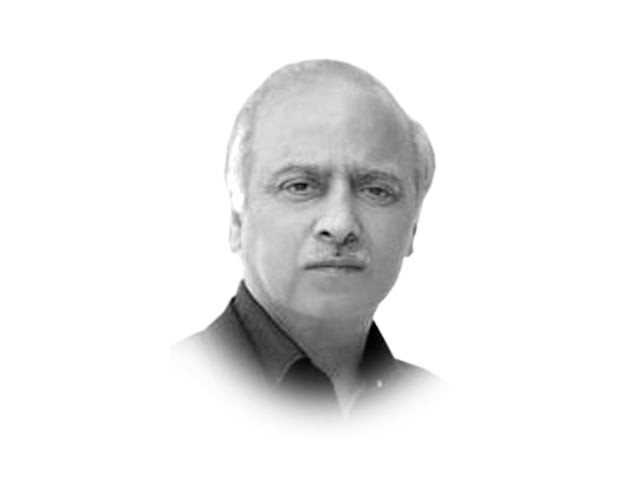Afghanistan — under gloom and optimism
Pakistan, as usual, remained at the receiving end, particularly by some US and mostly Afghan experts and ex-officials

Worries centred on the fragility of Ashraf Ghani’s government and the challenges it faces. Many of the two dozen or so participants drawn from the Americas, Europe and Asia also expressed cautious optimism for the future of Afghanistan, mostly pegging it to the continued international commitment to the country. The reason behind the optimism was the overriding consensus that China-US cooperation could be the likely key for the future of Afghanistan, and this synergy appeared to augur well for the regional forum initiative that Beijing is pushing to deal with Afghanistan’s political and economic challenges.
Most called the Ghani-Abdullah government a clear break from the Hamid Karzai legacy — which rested on an anti-Pakistan narrative and thus prevented any forward movement. Pakistan, as usual, remained at the receiving end, particularly by some US and mostly Afghan experts and ex-officials, who don’t see Islamabad abandoning the idea of ‘strategic depth’.
One Afghan expert, who now works for the UN, however, sounded more dispassionate when she cautioned others on “overplaying the Pakistanis’ interference in Afghanistan”. Pakistan may be more visible but everybody else also have their fingers in the Afghan pie. That is why, if the US is not involved in Afghan affairs as the lead power, there is no real elephant in the room. Although most Afghan participants sounded sceptical over Ghani’s Islamabad visit and his capacity to deal with the huge challenges, others did welcome the thaw in Islamabad-Kabul relations and hoped this will shake off the acrimony that surrounded bilateral relations under Karzai.
Most experts, however, agreed that only improved India-Pakistan relations can serve as the game-changer because this acrimonious relationship certainly complicates the situation. Some experts also cautioned against repeating past mistakes, such as pandering to notorious warlords. Continued predominance of, and violations by, former warlords and members of the Afghan security forces play into the hands of the Taliban. That is why there was need for a national consensus on the unity government and how to approach the Taliban. Others spoke carefully about sequencing the talks with the Taliban. Perhaps, it’s time to stop talking about these talks and focus more on governance, said a British observer. The Taliban have become unpopular in the countryside because of their brutal assaults and thuggery. The best way to respond to the insurgency is to provide good governance and ensure the rule of law. This could drain the “swamp” of the Taliban narrative.
Most conference participants advised Afghans to unlearn their various approaches including reliance on, and bashing of, other countries. For this, Afghans will have to reset themselves into an independent way of thinking and keeping the international community engaged, rather than peddling the themes that have stoked acrimony since 2001.
A new national narrative and strategy on peace, reconciliation and economic development will have to emerge as a signal to the international community that the Afghan elite are addressing their concerns and are ready to move on, rather than remaining immersed in a narrative that is anchored in victimhood and which tends to externalise the blame for the ills that afflict present-day Afghanistan. Some participants wondered why most people still plead for the Americans and Nato troops to extend their presence in Afghanistan. It is a wrong signal. Foreign troops should leave and entrust the Afghan security forces with the job of maintaining stability, as they have grown stronger and more capable, argued one participant. He also advised that the US should take the backseat on the military front and follow through with strategic decisions rather than reviewing them at critical moments. The sustainability of the Afghan government also figured prominently. Most participants underscored the importance of rapid governance and structural reforms followed by rule of law to keep foreign donors interested in Afghanistan.
Published in The Express Tribune, November 26th, 2014.
Like Opinion & Editorial on Facebook, follow @ETOpEd on Twitter to receive all updates on all our daily pieces.















COMMENTS
Comments are moderated and generally will be posted if they are on-topic and not abusive.
For more information, please see our Comments FAQ